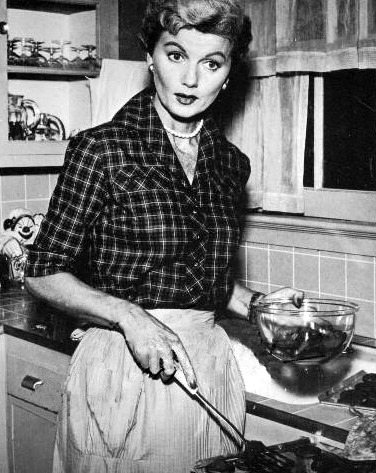We all know the rule, you live at home in the basement until you're married, right? And if that marriage, job, move to a yoga centre in California doesn't work out, the basement will be ready for your return, still decked-out in fake wood panelling and orange curtains with mom upstairs making meals and doing your laundry. Just like in That 70's Show...
I have recently had an idea for a book that I'd like to publish on financial advice that I would give to my Millennial generation peers entitled, How to Move Out of the Basement and Never Come Back. Since I'm not a professional financial advisor (yet, anyway), my words of wisdom are mostly anecdotal and gained from my own experiences. Since writing a book won't do much to keep me out of the basement personally, I thought I'd just share a few of the ideas I have in mind here at The Do-tique.
| Xylophone jobs were harder to get than anticipated! |
Living at Home Does Not Help Save Money
How often have you, your siblings or your friends used the old adage, "I'm just living at home for a while to save some money so that..."?
The problem is that a few years go by and the bank accounts are still pretty much empty.
Living at home doesn't save anyone money - I mean if it's between street life and basement dwelling, by all means, live at home - but the tactic that really helps anyone save money is to have a savings goal and a savings plan. Usually, if you're working and not getting resourceful about supporting yourself - ie. get a roommate, cut expenses - than you might have some work to do in terms of developing better spending and saving habits before you can expect your parents to help you.
Paying rent is not always throwing money away - do the math on property taxes and interest rates and sometimes renting can be better than buying.
 |
| Pact with the Devil (1633) |
Avoid Unnecessary Debts
When I graduated, I had a student loan that was worth more than my annual starting salary in my first job after graduation. I graduated in 2003 and cleared my loan by 2007.
The key is to continue living like a student for as long as you can while you still can and pay those suckers down. My strategy was to set up a savings account and move an amount over at the start of each month from my paycheck. If I needed the money later in the month, it was there for me. I would make a lump-sum payment on my loans each time the savings account balance reached $1,000. Soon, bigger purchases like cars, weddings, mortgages are going to start coming around and no one wants to be stuck at 30 still paying off purchases they made at 19.
Part of this mentality is choosing not to make luxury purchases that you have to borrow to acquire. This does not mean always use cash, but the bottom line is to re-claim a mentality that you have to save for things like clothes, electronics, trips.
By living as debt-free as possible, if your income changes suddenly, you're not carrying monthly debt payments as part of your fixed expenses. It might help you close the gap on a few more rent payments until times get better.
Saving Can "Buy" Time
Granted, young, single people rarely have room in their budgets for major savings, but that doesn't mean you shouldn't start looking at the small things. Finance gurus are always showing us how much those Starbucks trips and magazine purchases add up to annually. We noticed a huge difference just by taking bagged lunches to work and cutting down our restaurant visits to once a week or less.
So few people in my generation are working in full-time jobs with benefits and insurance. Most people are surprised to find out that EI benefit payments do not equal their regular salary or they are simply not eligible to make a claim. Events like job loss or the birth of a child might mean you need to rely on your savings to stay out of the basement. Do you have a good idea of what your monthly expenses are and how many months you could survive for on savings?
Once you've saved an emergency amount, you can start thinking about moving excesses into your retirement fund. The days of jobs with pensions are pretty well over for the Millennial generation and it's going to be up to us to self-manage this process.
 |
| Their mommies wouldn't let them bring their guns home from work! |
Build Your "A" Team
There are all kinds of professionals who can guide you through the steps that will help keep you out of the basement. Some are amazing and will treat you as well as their own children. You need to start looking for these people and getting to know them long before you'll need their help.
Your Parents - seriously and honestly think about their spending and saving habits and how they have managed their money, careers and hard times in the past. Ask them about these things if you can. The key to understanding your own ways of dealing with financial matters is buried in your experience as part of that family. It will help you to know what worked and what behavior you need to avoid.
Financial Advisor - these folks do more than just help the wealthy! Often, their advice is free and they get paid on commission through products you may eventually purchase through them. Shop around until you find someone you trust and ask them to help you create a financial plan.
Insurance and Mortgage Brokers - yes, you are indeed invincible, but just in case something happens, you are going to need to be insured. Agents can shop out the best policies for your needs. Question those automatic insurance checkboxes on major purchases and make sure you are getting the right coverage at the best prices.
As for a mortgage broker, you will be glad that you got pre-approval on a fantastic interest rate when you happen to find that perfect home to buy rather than having to scramble and risk losing a chance to make an offer. He or she can identify what you need to do to become eligible for a mortgage in case you do have some other major debts or bad credit in your past.
Real Estate Agent - buying a home for the first time is a major emotional and administrative experience. An agent can help you to get realistic about what your dream house costs and this will help you with developing a specific dollar amount you need to save for your down-payment. Get to know their personality long before that 2 AM negotiation session when you're ready to buy. Stay in touch with them afterward to discuss market prices and recoup values on renovations in your area before you put in a $10,000 hot tub. We'd spent three years getting to know our agent casually and it paid off when we ended up in a fast-moving bidding war over our dream home.
I am going to share this post with some professionals and perhaps they will have their own comments to add. What are your thoughts as a reader? Agree? Disagree?
DIY Rating: 10 and 0!
Unless you experience some very unlucky circumstances,
staying out of the basement is a total DIY project!
That means get resourceful about bringing in experts who
can help you get yourself the lifestyle you actually want.
And a bedtime that's as late as YOU want it to be!




